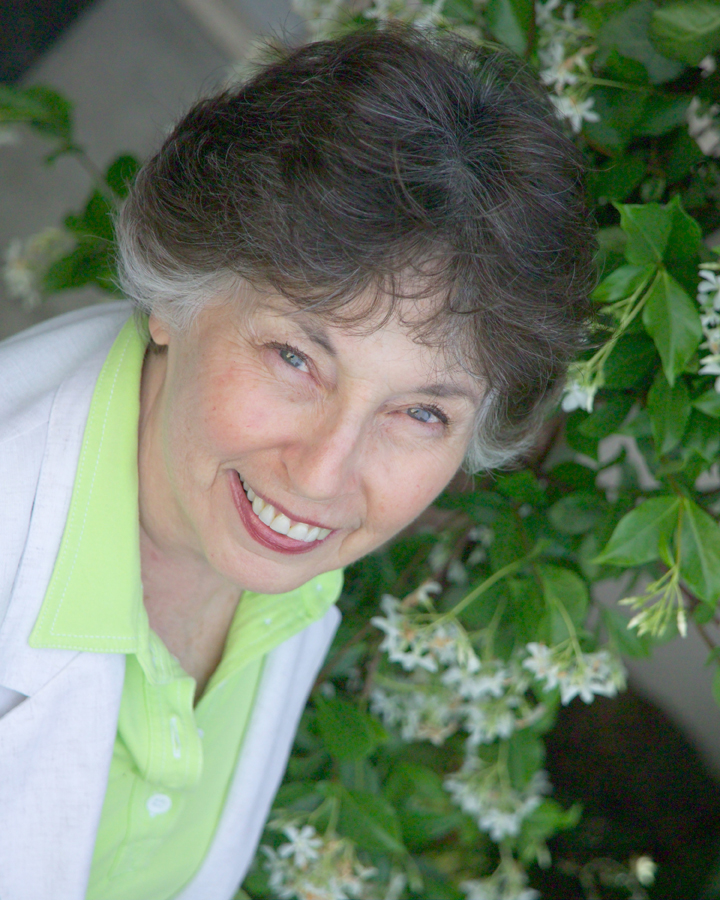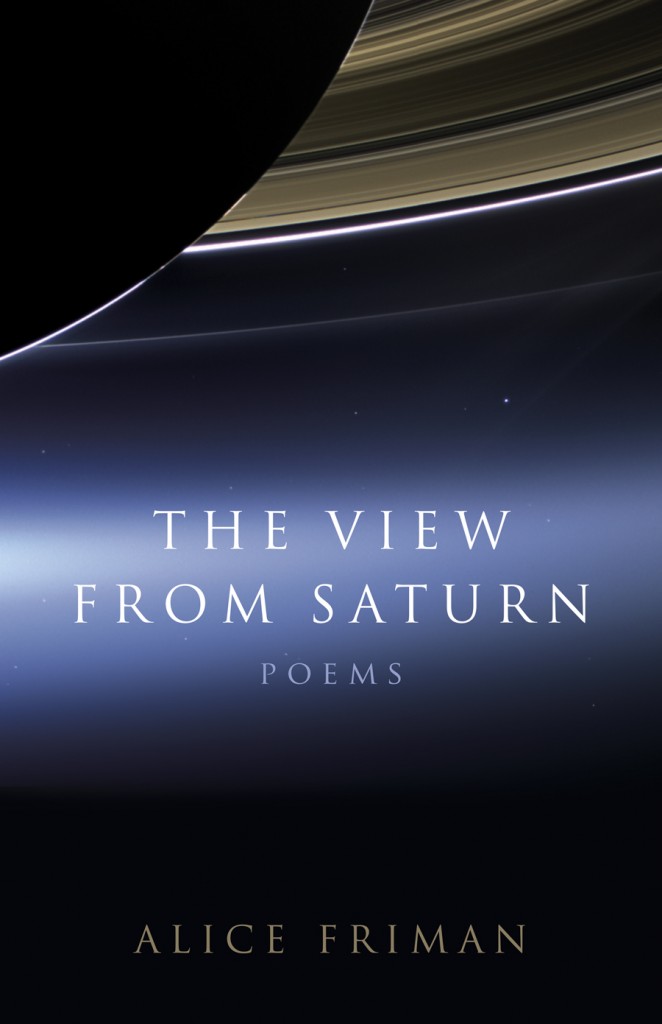Interview: Alice Friman
 Midwestern Gothic staffer Jamie Monville talked with acclaimed poet Alice Friman about what draws her to poetry, her influences, moving to the South, and more.
Midwestern Gothic staffer Jamie Monville talked with acclaimed poet Alice Friman about what draws her to poetry, her influences, moving to the South, and more.
**
Jamie Monville: What’s your connection to the Midwest?
Alice Friman: I’m from New York City, born and bred, but ended up—from some fluke of circumstance too long and complicated to go into here—in Dayton, Ohio, for five years and then in Indianapolis for forty-three. It was in Indianapolis where I went back to school, where I got a divorce, where I subsequently buried my ex, brought up three kids, bought my first very-own house, began to teach, and started to write poetry.
I am a charter member of what is now the Indiana Writers Center.
JM: You taught for a number of years in Indiana and are now a poet in residence at Georgia College & State University. How have these different roles affected your poetry? What do you think is the biggest difference between Indiana and Georgia and how has it affected your poetry?
AF: Well, I now only teach one class in the fall, so I have more writing time. When I taught for the University of Indianapolis, I taught 28 hours a year, a very heavy load. Too, I find that the more you write the more you have to write, so my writing here in Georgia has accelerated. I write pretty much every day. Since 2003 when I moved here, I’ve brought out three full-length books: The Book of the Rotten Daughter from BkMk, and Vinculum and The View from Saturn, both from LSU. I think retirement has made me more prolific, and I like to think a better writer. Of course the kids are grown and gone, and I have a house with a large, lovely studio, so I have more time and space to concentrate on the work. In Indianapolis I used to rent out space in an old office building: a little studio where nothing was done but the writing. That’s important, you know, for poetry to have its own space, no matter how small it is. In my last six years in Indianapolis, I was in charge of my mother’s last days and spent hours with her every day in the nursing home. That little studio saved my life–let alone my sanity.
Here in Georgia where I live with my “sweet young thing,” which is what I call my husband, our house is surrounded by forest. As I look out my studio window I can watch the hawks circling. I write about them along with all the different kinds of plants, so lush, so different from the midwest. And, oh yes, the terrible heat. Too, in Georgia I can go to the beach at Tybee Island just outside of Savannah and not at all far away. It reminds me of childhood summers on Long Beach, which, when I was a child was wild, empty and wonderful. A child’s paradise.
But I have a soft spot in my heart for the midwest. After all, I started writing there. And I guess I still consider myself a midwest poet. Funny, I never write about New York City where I was born and grew up, and I don’t know why.
In some ways Indiana and Georgia are alike. They are both very politically conservative, which I don’t much care for.
JM: You have said that you “did not set out to write poetry: to choose a life dedicated to the lonely struggle of stringing words together.” What did you set out to do before you became a poet?
AF: I started college in 1950. I was sixteen and didn’t know my head from my elbow. In those days the only choices a young woman had were to go into education or nursing. That’s probably not true, but that’s all I could see, and no advisor told me differently. What I wanted? I wanted to be a dancer. I wanted to be an actress. I wanted to do something big and exciting. I ended up, barely twenty years old, teaching third grade in Harlem in a school where the windows were broken out, and the only workbooks we had were not to be written in. Where the blackboards were so old and pitted, they were not usable. In retrospect, I think I was probably, if not an out-and-out bad teacher, surely an ineffectual one. As a result of my two years spent teaching 3rd and 4th grades, I want to say that I think those teachers working in the trenches of American schools—overworked, under-appreciated, and underpaid—are truly our unsung heroes.
You ask, what I set out to do. I had three kids and went back to school. I became an English professor. I did “set out to do” that, yes. In the meantime I wrote poetry and hid it in a drawer. I did that for fourteen years. Then I got a divorce and took the poetry out of the drawer. That sounds glib, I know. I don’t mean it / want it to sound that way, for those last years of my marriage were painful ones. But once the poetry was literally and figuratively “out of the drawer,” I can say, in retrospect, that that meant I was beginning my second life. The more you write poetry, the more you write poetry until it becomes who you are: the way you think, the way you figure out what’s happening and how you feel. Did I “set out to do” that? I don’t know. I like to think I didn’t find poetry as much as poetry found me. To save my life maybe. Who knows.
JM: What draws you to poetry?
AF: Well, poetry boils down an experience, a thought, a feeling, to its essence. For me, writing is like high play, perhaps closest to mathematics. I don’t know why I say that nor can I quite explain it, but I know it’s true. Here’s a quote one might find interesting. It’s from The Body Show. The quote is about what happens in the brain when one is doing creative work. “The creative process generates the new by seeing the known in an unusual way. It is founded on a sense of wonder and fed by the ability to pursue an idea simply to satisfy our curiosity…. The hormone dopamine stimulates the neural networks in the frontal brain. These networks have access to the long term memory located in the back of the brain.” And then it says, “These two regions are usually not connected. But in a creative process they are brought together in a state of exultation.” Exultation! Yes. After I write and rewrite the same eight lines for days and days, when the words finally fall in, yes, there is a flood of exultation. No other word will do.
 JM: The View From Saturn focuses on looking at life both from a large distance as well as intimately by zooming in or out depending on the level of that objectivity or subjectivity. Do you find that as a poet and or as a person one end of the object vs subjective spectrum comes more naturally than the other? Or are you constantly toggling back and forth?
JM: The View From Saturn focuses on looking at life both from a large distance as well as intimately by zooming in or out depending on the level of that objectivity or subjectivity. Do you find that as a poet and or as a person one end of the object vs subjective spectrum comes more naturally than the other? Or are you constantly toggling back and forth?
AF: I am constantly, as you say, toggling back and forth.
JM: What was the inspiration for the title: The View From Saturn?
AF: Probably a trip my husband and I took to New Zealand and Hawaii where we went to the top of Mauna Kea to look through the telescope, and I saw Saturn. It was thrilling. But that story is in the book.
JM: Which poet and or writer has most influenced your style?
AF: I don’t know if I can answer that, it being a job for the critics. But I do think that one’s “style” has to do with who you are and how you speak. If I’m right, that’s what comes out in the poems. I hope so anyway
JM: What’s next for you?
AF: Well, I’m eighty-one years old, so I don’t want to entertain that question too seriously.
I look forward to writing for as long as I can. It’s my passion, my raison d’etre, my sweet hell. To celebrate the new book, I have quite a few readings coming up across the country which I’m pleased about and which will keep me busy. My husband (my sweet young thing) and I have some overseas trips planned, and in the meantime I spend my days up here in my studio which looks out over the tops of trees and where I often watch the storms come in and the hawks circling. Sounds good to me.
**
Alice Friman’s sixth full-length collection is The View from Saturn from LSU Press. Her previous collection is Vinculum, LSU, for which she won the 2012 Georgia Author of the Year Award in Poetry. She is a recipient of a 2012 Pushcart Prize and is included in Best American Poetry 2009. Friman lives in Milledgeville, Georgia, where she is Poet-in-Residence at Georgia College. Her podcast series, Ask Alice, is sponsored by the Georgia College MFA program and can be seen on YouTube.






